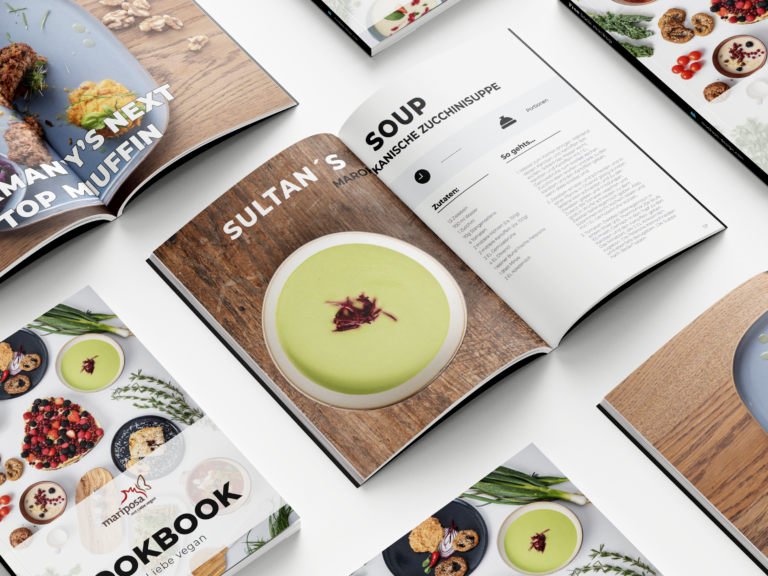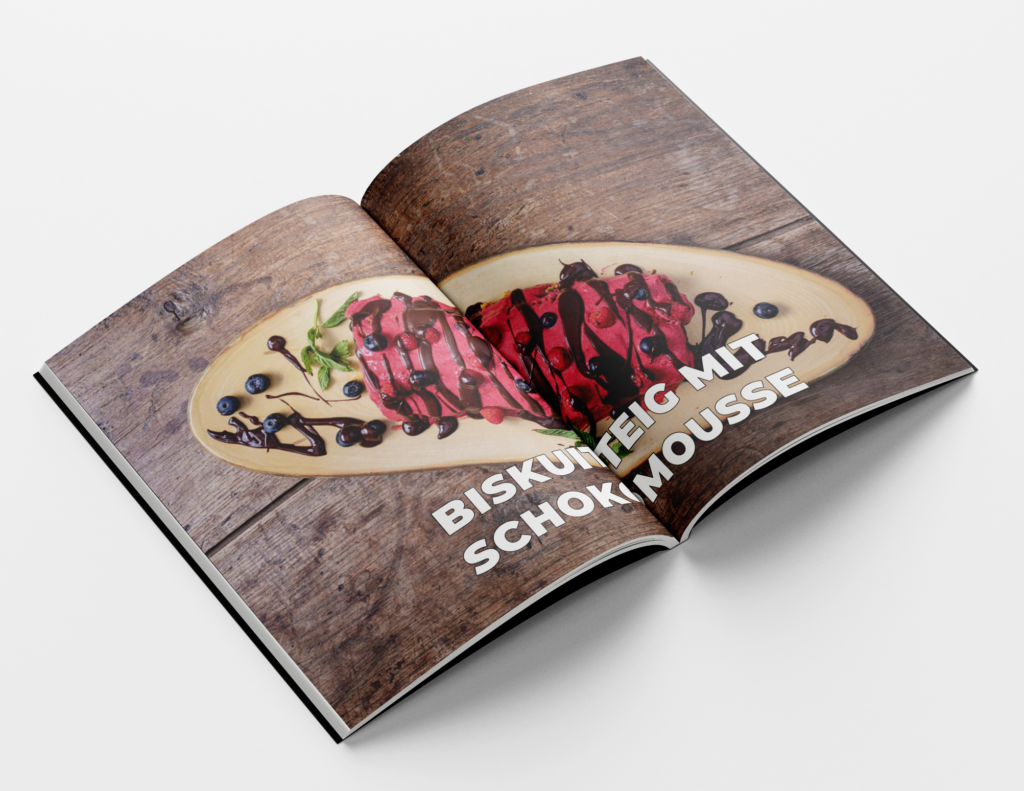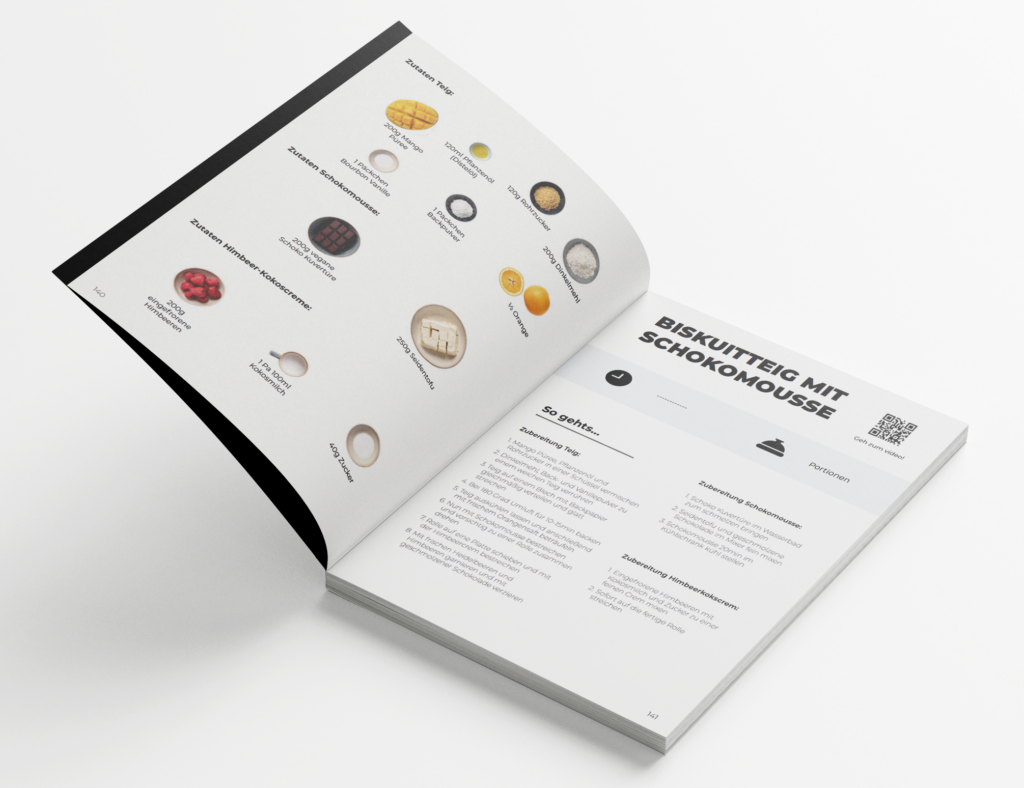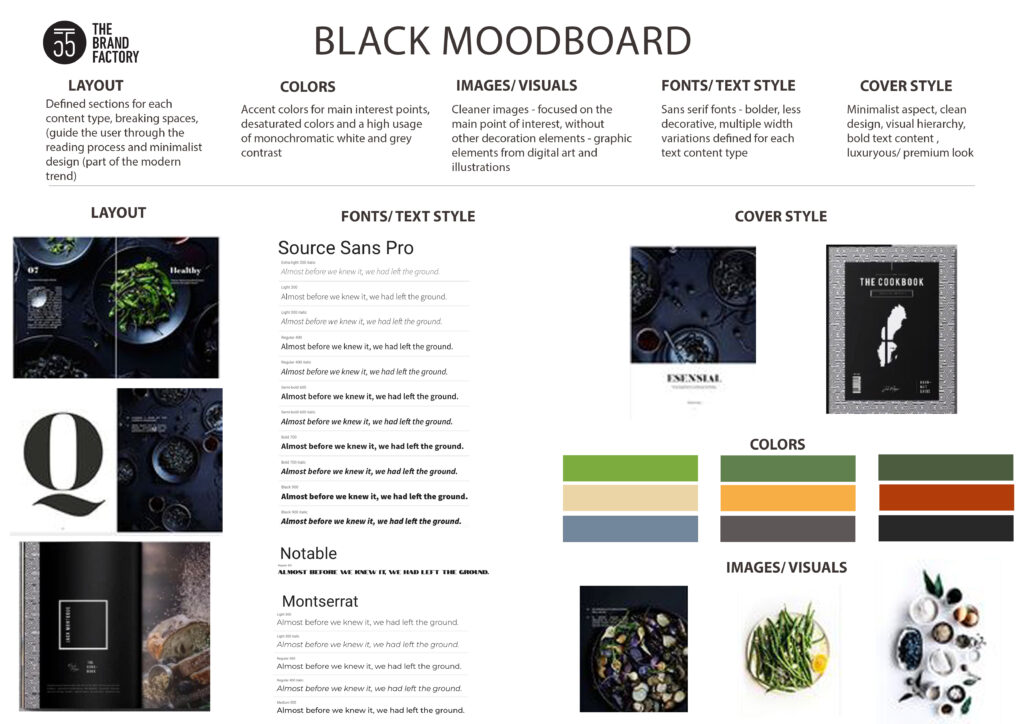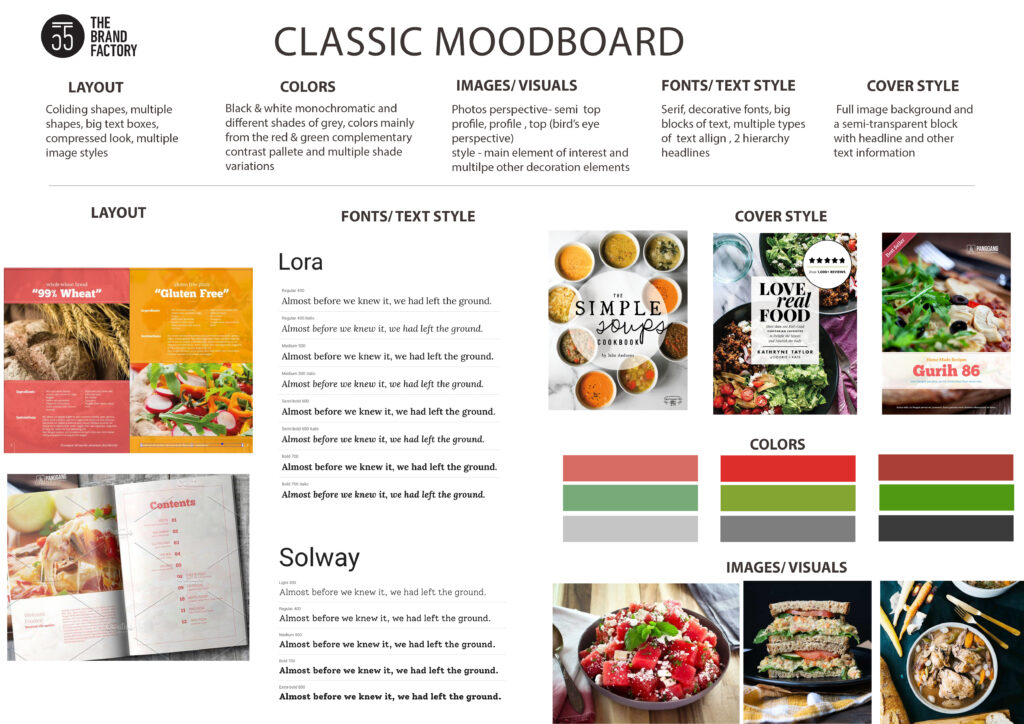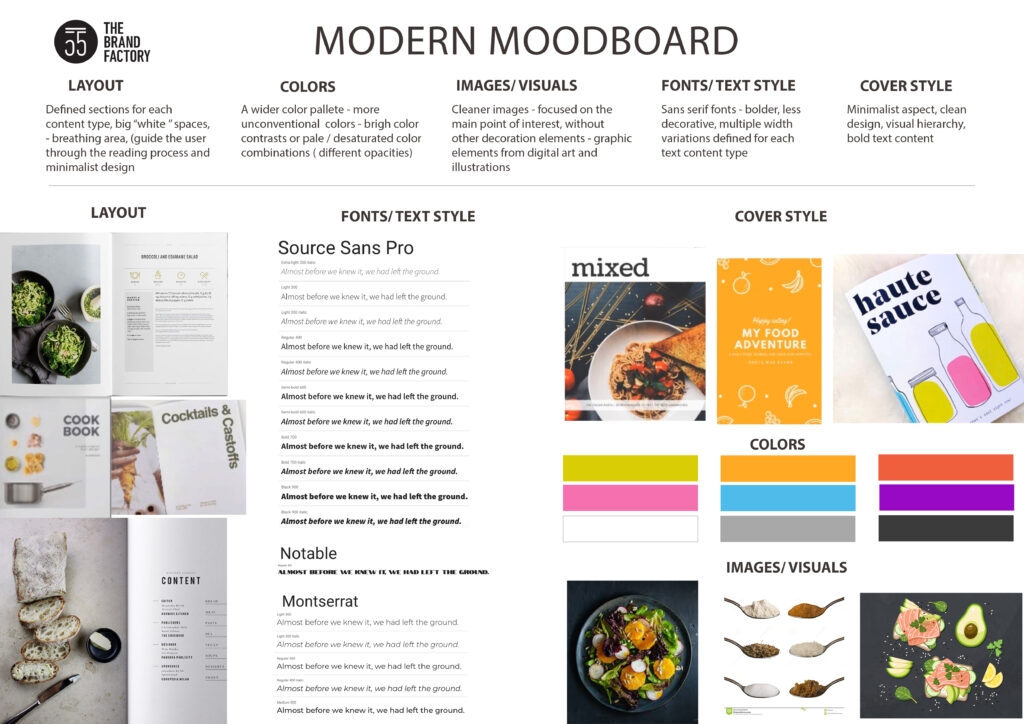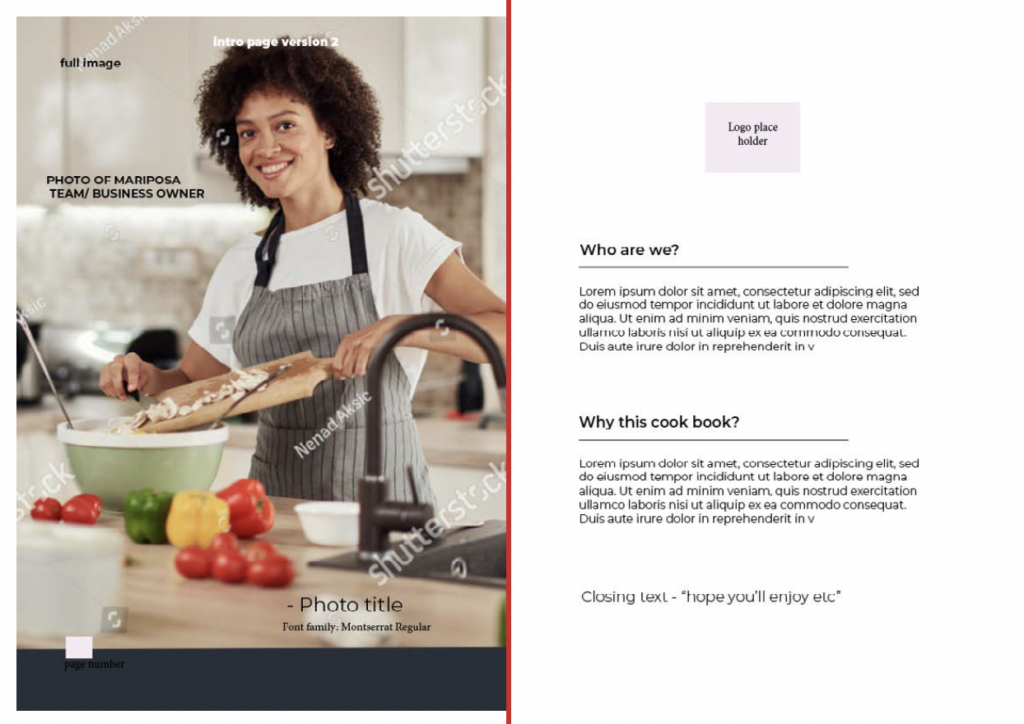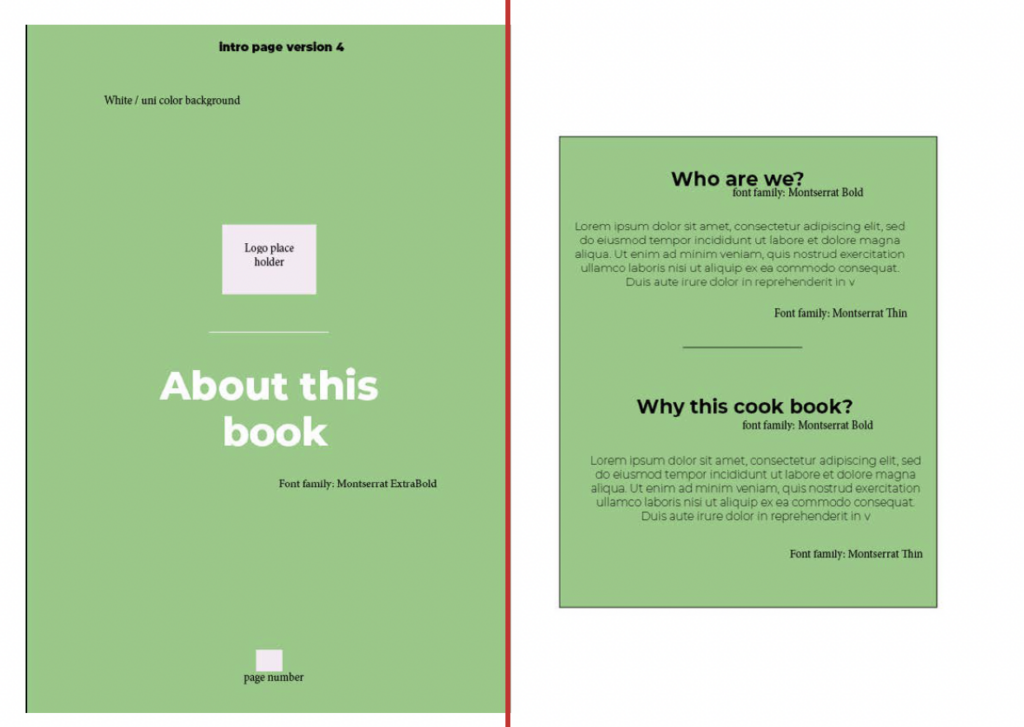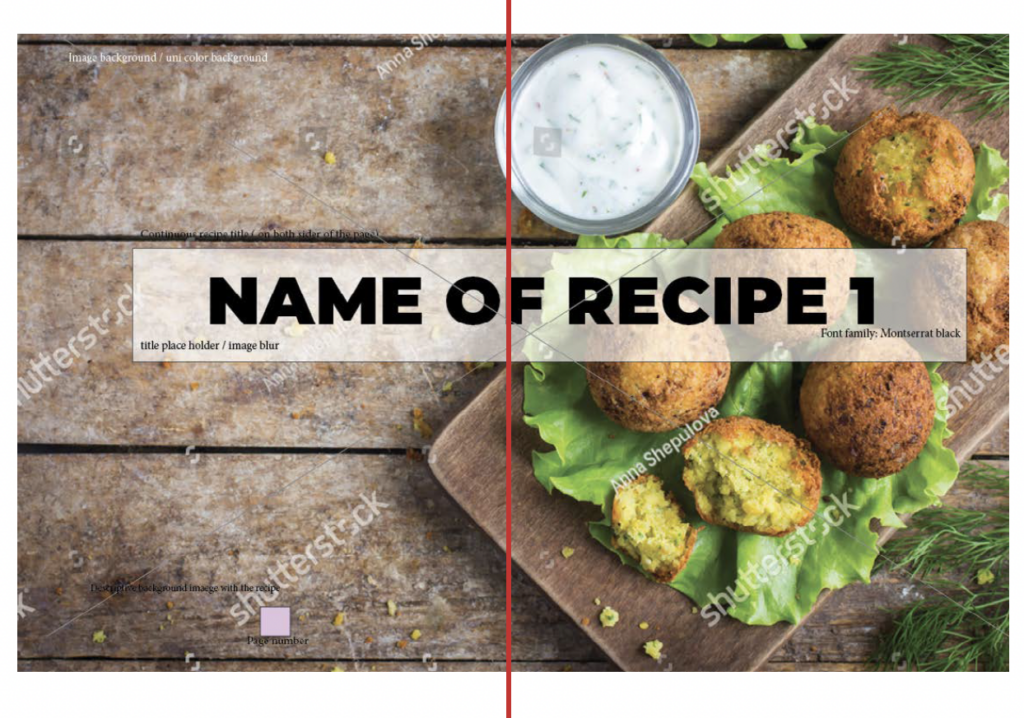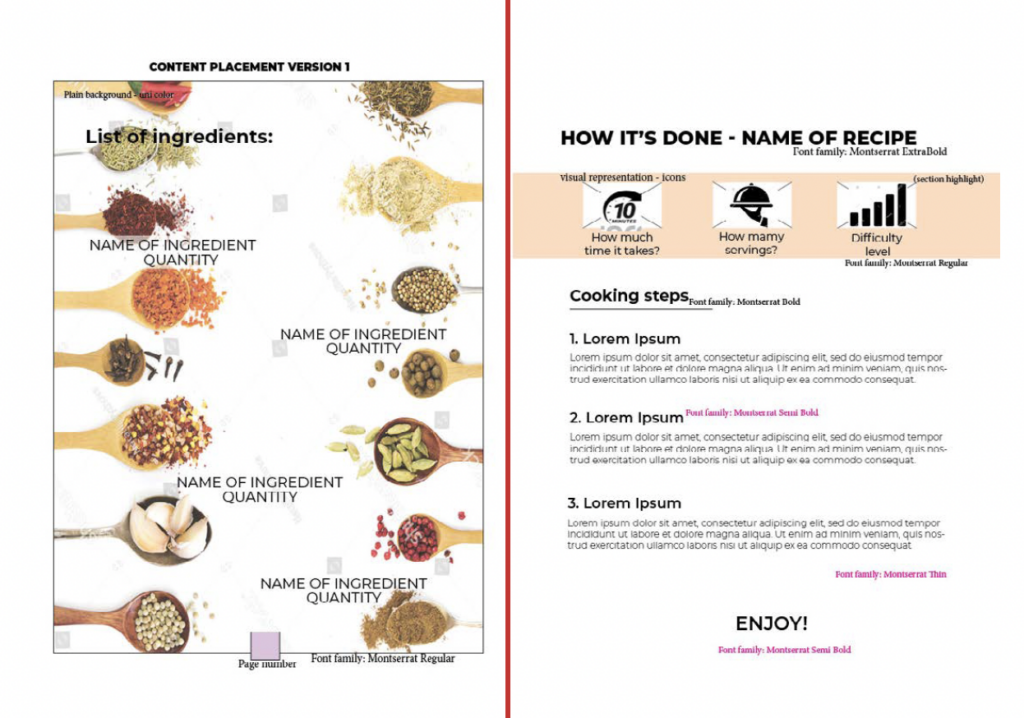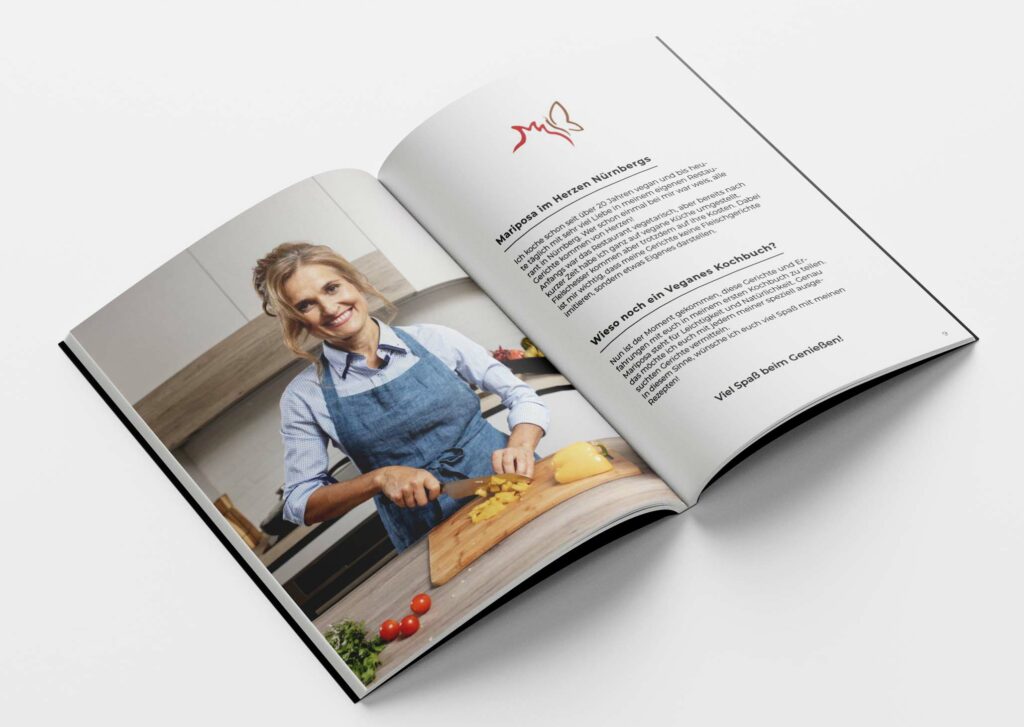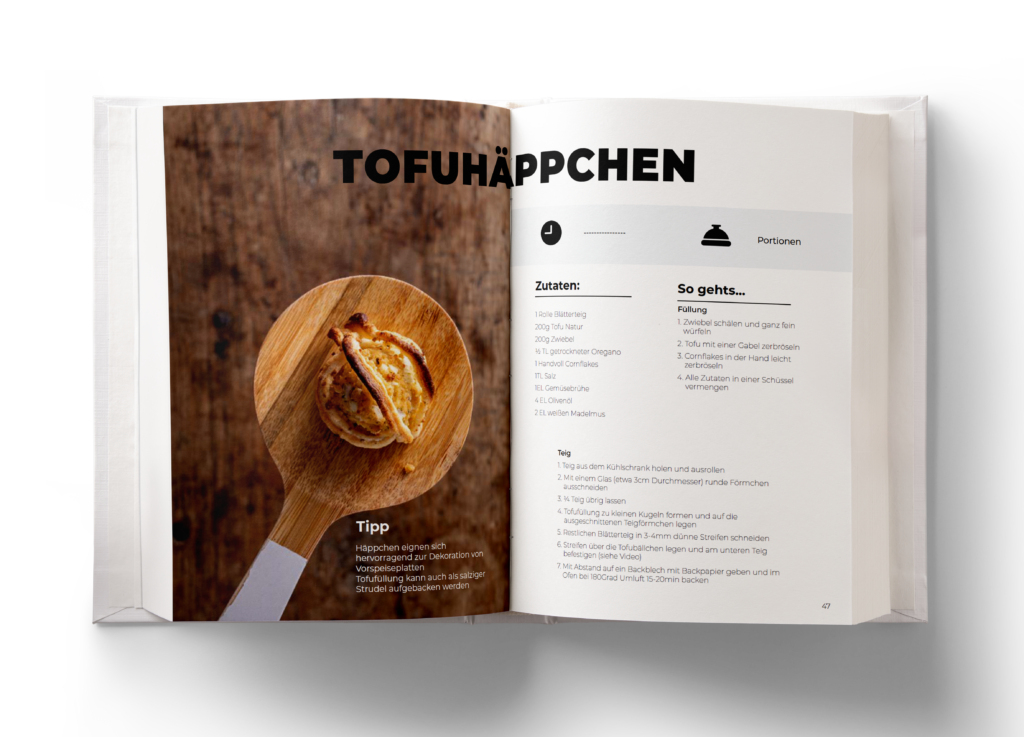Mariposa CookBook
Concept development, design and creative process coordination - developing a Cook Book for Vegan restaurant Mariposa from Germany.
Project Overview
Company Description
Mariposa is a plant-based restaurant based in Germany with new and exciting vegan recipes, that are easy to make ant super tasty.
The business wants to launch a vegan cookbook where they showcase some of their incredible dishes from the restaurant, together with an easy to follow process of preparing the food – engaging experience while reading the book & cooking, sleek design and video tutorials for every recipe.
Project Description
Define a cookbook to present famous recipes of the restaurant, in an easy to understand and follow manner, together with a digital integration – including interactive recipe tutorials and use of QR codes.
Objectives
- Find an innovative and consistent way to display the delicious recipes the restaurant offers – a easy guide for recipes, together with incredible pictures and layout that is inviting and exciting at the same time.
- The main objective was to come up with a solution that is unique and expresses the personality of the restaurant, instead of just fitting in the box of regular cook books.
Year
2020 – approx. 5 months
Role
Product Designer & Manager
Skills & Tools
Adobe CC
Creative design process combined with testing for validation
Print design
Organising workshops
Managing and instructing the entire production team
1. Research
Research main findings:
– market status : the type of cookbooks that are already for sale – competitive audit
– features : that does the book present, what do you receive in the price of the book – uncovering development opportunities (what can we come up with that is interesting or useful for the audience)
– design and content research : for id the book built, how is the content displayed, what layout is the book using
2. Design Development
The scope of the Design Development phase was to start building a design concept that the book will be later on build on – starting from the moodboard stage, all the way to the final prototype.
All stages suffered multiple testing iterations, either just with the internal development team. or with the business representatives as well. Testing sessions were used in order to identify whether the product was serving the right needs and reaching the desired outcome.
The product development stages follow closely the Design Thinking model – following the stages to “develop/test & redo ” iterations.
2.1 Moodboards
Creating moodboards that represent concrete combinations of visual styles. The moodboards were tested to set s specific style the book design concept is going to follow for further development.
Testing concluded the book will use a combination of Classic elements – colour scheme, photographic style; and Modern elements – layout and content structure, fonts.
2.2 Wireframes
The wireframe stage started with a brainstorm process of identifying the core content categories and sections : introduction page, food category section, recipes section, outro section, references.
Building up the layout and creating multiple variations of layouts and display for every page category.
The layout was tested together with the internal team to define the final layout development and move forward to the prototype section.
Introduction page layouts:
Food category page & recipe page layout:
3. Project coordination
Content creation
My responsibility for the project was to coordinate the entire creative process, from the product design to the management of creative content – videography and photography, together with branding. This included: maintaining communication with stakeholders, ask for offers and define a budget, maintain costs within the budget, coordinate video/photo sessions and make sure that production was following the already existing concept and style the cookbook was developed on.
Photo/Video content production
Coordinate the production team, by organising an intro meeting and presenting the design concept of the cookbook, explain the vision and desired aspect of the video/photo production.
4. Prototype
Prototyping phase is the last part of the creative process, and the phase that suffered the highest amount of iterations. The prototype suffered multiple testing sessions, testing whether the content, visual elements, element sizing and positioning.
